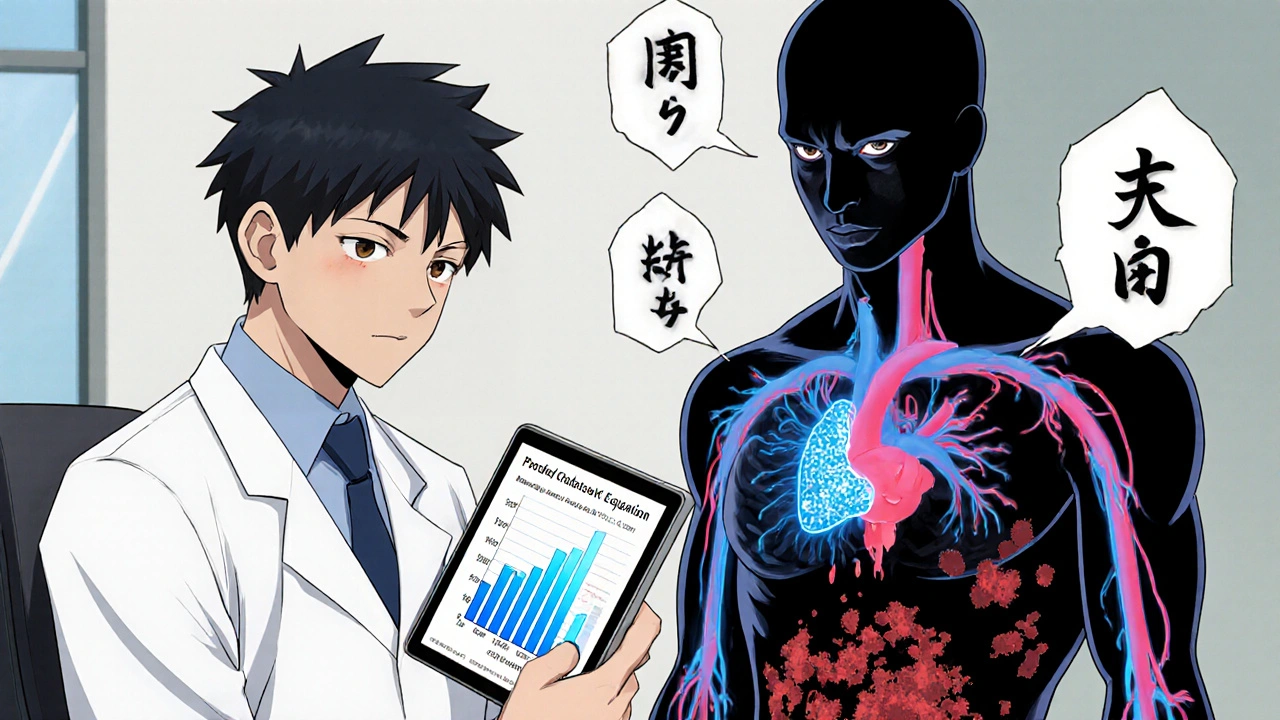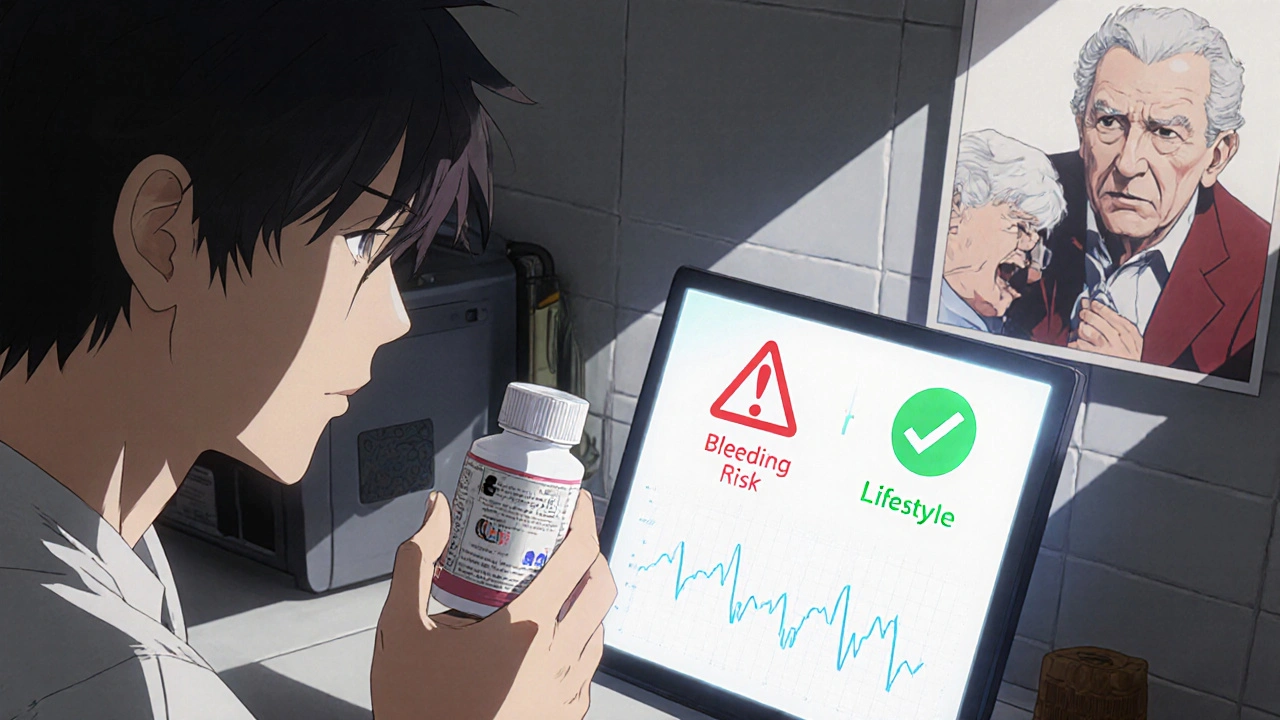For decades, taking a daily low-dose aspirin was a common habit for people worried about heart disease. If your parent had a heart attack, you probably heard, "Just take a baby aspirin every day." But that advice has changed-dramatically. As of 2025, most healthy adults should no longer take aspirin to prevent their first heart attack or stroke. The science has caught up with reality: for many, the risks outweigh the benefits.
Why Aspirin Was Once Thought to Prevent Heart Disease
Aspirin works by stopping platelets from clumping together. That’s important because heart attacks and strokes are often caused by blood clots blocking arteries. In the 1980s and 1990s, studies showed that people who’d already had a heart attack or stroke had fewer events when they took aspirin daily. That made sense. But then researchers started testing it on people with no history of heart disease-people like you, who feel fine but are worried about what might happen.
At first, those studies looked promising. The Physicians’ Health Study in 1988 showed a drop in heart attacks among male doctors taking aspirin. That led to a wave of recommendations. By 2010, nearly 40% of Americans over 40 were taking aspirin daily for prevention. But over time, new data came in-and it told a different story.
The New Guidelines: Aspirin Isn’t for Everyone Anymore
In 2022, the U.S. Preventive Services Task Force (USPSTF) updated its guidelines, and it was a major shift. They now say: do not start aspirin for heart disease prevention if you’re 60 or older. For people between 40 and 59, aspirin might be considered-but only if you have a high risk of heart disease and low risk of bleeding. And even then, it’s not automatic.
The American College of Cardiology and American Heart Association (ACC/AHA) agree. Their 2019 guidelines say aspirin might be considered for adults 40 to 70 with high cardiovascular risk-but only if bleeding risk is low. That’s a big change from the old "just take one" approach.
Meanwhile, the European Society of Cardiology says don’t use aspirin for prevention at all. They’ve pulled the plug completely.
Why the change? Because modern medicine has gotten better. We now have powerful statins that lower cholesterol by 30-40%, blood pressure meds that control hypertension effectively, and better awareness of lifestyle factors like smoking and diet. Aspirin’s benefit-reducing heart attacks by about 10-15%-is now tiny compared to what statins can do. And the cost? Bleeding.
The Real Danger: Bleeding Risks Outweigh Benefits
Aspirin doesn’t just thin your blood to protect your heart. It makes it harder for your body to stop bleeding anywhere. That means:
- Stomach ulcers and gastrointestinal bleeding
- Bleeding in the brain (hemorrhagic stroke)
- Easy bruising and nosebleeds
- Increased risk if you drink alcohol regularly or take other blood thinners
Here’s the hard truth: for every 100 people aged 60+ taking aspirin daily for 10 years, about 1 might avoid a heart attack. But about 2 will have a serious bleeding event that requires hospitalization or a blood transfusion.
That’s not a good trade-off. And it gets worse with age. By 70, the bleeding risk climbs even higher, while the chance of preventing a heart attack drops. That’s why the USPSTF says: don’t start aspirin after 60.

Who Might Still Benefit? High-Risk Groups
There are exceptions. Aspirin might still make sense for certain people-even if they’ve never had a heart attack.
People with diabetes: If you have diabetes and are over 40, especially with other risk factors like high blood pressure or smoking, aspirin may still be recommended. The American Diabetes Association says it’s reasonable to consider.
People with very high cholesterol: If you have familial hypercholesterolemia-a genetic condition that causes extremely high LDL cholesterol from a young age-some experts still recommend aspirin, even if you’re under 50.
People with high coronary artery calcium (CAC) scores: A CAC scan measures calcium buildup in your heart arteries. A score over 100 (or above the 75th percentile for your age) suggests significant plaque. In these cases, aspirin may offer a net benefit. But this isn’t routine testing-it’s only done if your doctor suspects high risk.
Even for these groups, it’s not a blanket recommendation. You need to talk to your doctor. And if you’ve ever had a stomach ulcer, bleeding disorder, or take NSAIDs like ibuprofen regularly, aspirin is probably not for you.
What About Family History?
This is the most common reason people cling to aspirin: "My dad had a heart attack at 55. I’m 62. I need to take it."
Family history matters-but it’s not enough. It’s one factor among many. If you have a strong family history but your own cholesterol is normal, your blood pressure is under control, you don’t smoke, and you’re active, your personal risk may still be low. Taking aspirin won’t cancel out your genetics. It might just give you a bleeding ulcer.
Doctors now use tools like the ACC/AHA Pooled Cohort Equation to calculate your 10-year risk. It asks for your age, sex, race, cholesterol, blood pressure, diabetes status, and smoking history. It’s not perfect-but it’s far better than guessing based on your dad’s experience.

What If You’re Already Taking Aspirin?
If you’re already on daily aspirin and you’re over 60 with no history of heart disease, don’t stop cold turkey. Talk to your doctor.
Stopping aspirin suddenly can, in rare cases, trigger a rebound clotting effect. Your doctor will help you taper off safely-or confirm you should keep going if your risk profile justifies it.
Many people are surprised to learn their doctor never actually assessed their risk before prescribing aspirin. A 2021 study found only 43% of primary care doctors correctly calculated their patients’ 10-year heart disease risk. If your doctor just said, "Take one a day," ask for the numbers. What’s your actual risk? What’s your bleeding risk?
Alternatives to Aspirin for Prevention
Aspirin isn’t the only tool. In fact, it’s no longer the first line.
- Statins: If your LDL cholesterol is high, a statin like atorvastatin or rosuvastatin is far more effective at preventing heart disease than aspirin. They’re also safer for most people.
- Blood pressure control: Keeping your systolic pressure below 130 reduces heart attack risk more than aspirin ever did.
- Lifestyle: Walking 30 minutes a day, eating more vegetables and less processed food, quitting smoking, and limiting alcohol are proven, powerful, and free.
Aspirin was once a miracle drug. Now, it’s a tool with narrow use. For prevention, it’s not the hero-it’s the last resort.
Bottom Line: Aspirin Is Not a Daily Vitamin
Aspirin is not a supplement. It’s a medication with real, serious side effects. You wouldn’t take a prescription antibiotic without a reason. Don’t take aspirin without one either.
Here’s what you need to do in 2025:
- If you’re under 40: Don’t start aspirin. Focus on lifestyle.
- If you’re 40-59: Talk to your doctor. Get your 10-year heart disease risk calculated. If it’s above 10% and your bleeding risk is low, consider aspirin. If not, skip it.
- If you’re 60 or older: Do not start aspirin. If you’re already on it, talk to your doctor about stopping.
- If you’ve had a heart attack, stent, or stroke: Keep taking aspirin. It’s still essential for secondary prevention.
The days of popping aspirin like candy are over. Prevention today is smarter, safer, and more personalized. Your heart doesn’t need aspirin-it needs you to know your numbers, control your blood pressure, manage your cholesterol, and live well.
Should I take aspirin every day to prevent a heart attack?
For most people, no. If you’re over 60 and have never had a heart attack or stroke, aspirin is no longer recommended for prevention. For people 40-59 with high heart disease risk and low bleeding risk, it might be considered-but only after a detailed discussion with your doctor. For everyone else, lifestyle changes and statins are safer and more effective.
Is baby aspirin safe for long-term use?
Long-term aspirin use increases your risk of internal bleeding, especially in the stomach and brain. Even "baby" aspirin (75-100 mg) carries this risk. The older you are, the higher the risk. If you’ve been taking it for years without a clear medical reason, it’s time to talk to your doctor about stopping.
What if my doctor told me to take aspirin, but I read online that I shouldn’t?
Ask your doctor to show you your 10-year cardiovascular risk score using the ACC/AHA Pooled Cohort Equation. If they can’t calculate it, ask for a referral to a preventive cardiologist. Guidelines changed in 2022-many doctors haven’t updated their practice yet. Your health is worth a second opinion.
Can I take aspirin if I have diabetes?
Yes, for many people with diabetes over 40, aspirin is still recommended-especially if they have other risk factors like high blood pressure or smoking. But it’s not automatic. Your doctor will weigh your bleeding risk (do you have ulcers? Are you on other blood thinners?) before recommending it.
What are the signs I’m bleeding from aspirin?
Watch for: black or tarry stools, vomiting blood or material that looks like coffee grounds, unexplained bruising, frequent nosebleeds, headaches with dizziness (possible brain bleed), or unusually heavy menstrual bleeding. If you notice any of these, stop aspirin and call your doctor immediately.






Latrisha M.
November 14, 2025 AT 21:49Aspirin isn't a vitamin. It's a drug with real risks. If you're over 60 and never had a heart event, talk to your doctor before continuing. Lifestyle and statins are far more effective and safer for prevention.
Deepak Mishra
November 16, 2025 AT 19:34OMG I JUST REALIZED MY DAD TOOK ASPIRIN FOR 30 YEARS AND NOW HE HAS A BLEEDING ULCER??!! 😭 I'M SO SAD AND ANGRY AT DOCTORS WHY DID NO ONE TELL US??
Jamie Watts
November 18, 2025 AT 13:03Look I've been taking baby aspirin since I was 45 because my grandpa dropped dead at 58. I don't care what the guidelines say. I'm not dying because some study says my risk is 8.7% and I'm not a statistic I'm a human being with a family history
Danish dan iwan Adventure
November 19, 2025 AT 11:52Aspirin's NNT for primary prevention is 100:1 for MI reduction vs. 50:1 for major GI bleed. Statins have NNT of 25:1 for CVD events. The risk-benefit calculus is mathematically indefensible for low-risk populations.
Oyejobi Olufemi
November 19, 2025 AT 17:14You think this is about medicine? No. This is about corporate control. Big Pharma pushed statins because they're profitable. Aspirin is cheap. They needed to scare you into abandoning it so you'd buy their expensive pills. The bleeding risk? Exaggerated. The benefits? Suppressed. Wake up.
Rachel Wusowicz
November 20, 2025 AT 04:11They told us to take aspirin... and now they say it's dangerous? Who do we trust? The same people who said saturated fat was evil and then said it wasn't? The same people who said hormone replacement was safe and then said it caused cancer? The same people who said vaccines cause autism and then said they didn't? I'm not taking anything anymore. I'm just eating kale and praying. And I'm not alone. Everyone's terrified of medicine now. Nobody knows what to believe anymore. And the worst part? We're all just guessing. And dying anyway.
ZAK SCHADER
November 21, 2025 AT 08:54Why are we listening to some European group that thinks walking counts as cardio? We're Americans. We've got the best doctors the best science the best tech. If you're worried about bleeding just take a stomach pill with it. Problem solved. The real problem is we're getting soft. Back in my day we took aspirin and we didn't complain.
John Mwalwala
November 22, 2025 AT 15:39Let me break this down for you in layman's terms: Aspirin = blood thinner. Blood thinner = risk of internal bleeding. Internal bleeding = bad. Statins = cholesterol reducer. Cholesterol reducer = less plaque. Less plaque = less clots. Less clots = less heart attacks. The math is simple. Aspirin is a blunt instrument. Statins are precision tools. Stop using a hammer when you have a scalpel.
Daniel Stewart
November 23, 2025 AT 13:19There's a deeper philosophical question here: When does prevention become a form of control? We've turned the body into a machine to be optimized. We measure everything. We quantify risk. We prescribe interventions before symptoms arise. But what of the human experience? The uncertainty? The acceptance of mortality? Aspirin was never about health. It was about fear. And now we're being asked to face that fear without the chemical crutch. That's the real shift.
Diane Tomaszewski
November 24, 2025 AT 20:35I'm 52. I have high cholesterol but no other risk factors. My doctor ran the calculator. My 10-year risk is 7%. Bleeding risk is medium. She said aspirin isn't right for me. I was surprised. I thought I was doing the right thing. But now I feel better. I'm walking every day. I'm eating more plants. I'm sleeping better. That's what matters. Not the pill. The habits.
Latrisha M.
November 26, 2025 AT 10:49Thanks for sharing that. I'm glad your doctor took the time to calculate your actual risk. Too many people are still on aspirin because their doctor never checked. If you're already on it and you're over 60, don't quit cold turkey. Ask your doctor about tapering. It's not about fear. It's about smart choices.